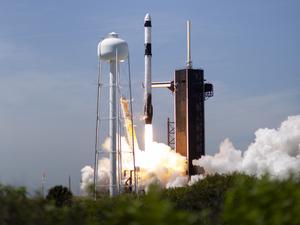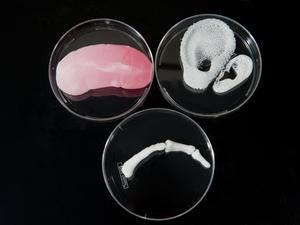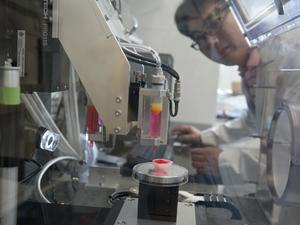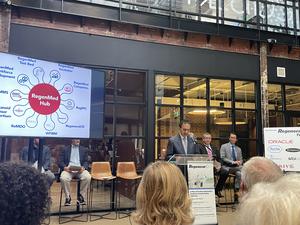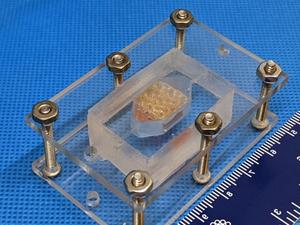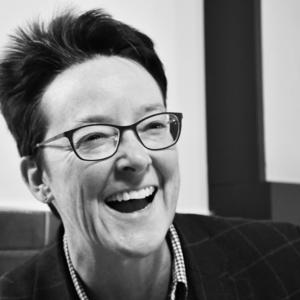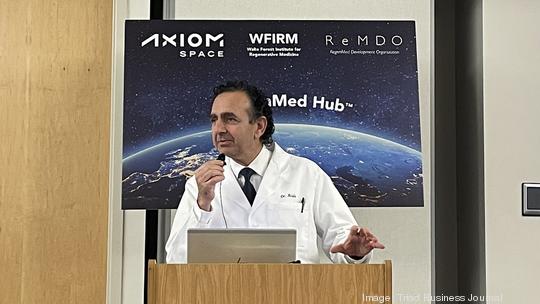
We’ve all thought about how it would make our bodies feel to float in zero-gravity. But, have we ever thought about how it would effect our cells?
The Wake Forest Institute of Regenerative Medicine (WFIRM) is thinking about that.
Yesterday, WFIRM announced its three-way partnership with Axiom Space, a private company that is building the world’s first commercial space station, and the RegenMed Development Organization, a nonprofit that aims to advance the field, particularly through innovation and manufacturing. Axiom Space has established its presence in the Regenerative Medicine Hub, based in Innovation Quarter, by signing on as a tenant in ReMDO’s Innovation Accelerator.
The goal of the partnership is to advance in-space regenerative medicine biomanufacturing.
Growing an organ from scratch seems complicated enough on Earth, although WFIRM has proved time and time again that it is not science fiction. Dr. Anthony Atala, director of WFIRM, explained that there are numerous benefits to studying regenerative medicine in space.
“The next frontier is manufacturing in space,” Atala said. “The first reason for that is that it has to do with bringing new technologies that we can manufacture in space that will make it better for treatments here on Earth. The second is that we can develop technologies that can help our space travelers and our folks in space.”
Atala explained that many things do better in micro- or no-gravity conditions, like cell growth and expansion. He also said that stem cells – an important part of regenerative medicine – do better in no-gravity conditions.
“You can experiment in those conditions and then bring that reproducibility back to Earth to patients,” he said.
This could help with the cost of cell growth, which is a major challenge in the regenerative medicine industry. It’s less expensive to figure out how to best do it in no-gravity conditions in space and then bring those conditions back to Earth, Atala explained.
Initially, regenerative medicine will be studied at the International Space Station (ISS), which is set by NASA to be decommissioned by the end of the decade. Then, the study of regenerative medicine will move over to the still-to-come Next Generation Space Station.
Axiom, which is working to build the first commercial space station, expects to have its first module docked to the ISS by 2024. It also recently made headlines for its Axiom Mission 1, the first mission to send private astronauts to the ISS.
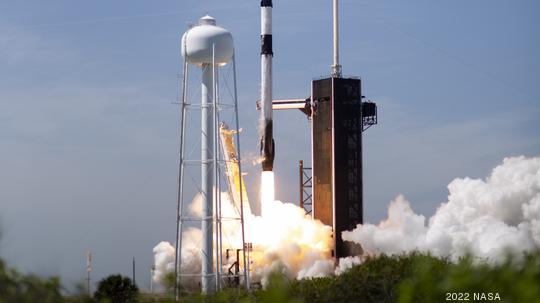
Although the research will be conducted out of this world, the partnership is expected to benefit Winston-Salem, a city looking to leverage its identity as a global hub for regenerative medicine.
Axiom will initially have one full-time person in Winston-Salem. It will have access to roughly 1,500 square feet of office and shared laboratory space in Innovation Quarter, in addition to the RegeneratOR Test Bed.
Jana Stoudemire – who, as commercial innovation strategy lead for Axiom Space, works to create a commercial space economy for biomedical and in-space manufacturing – said that Axiom will use resources that already exist in Winston-Salem.
“We can leverage from this community resources like lab technicians and people that we are going to need help staff us,” she said.
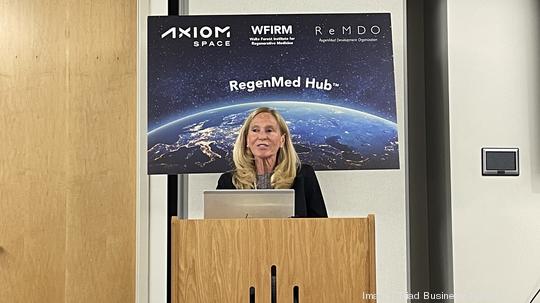
When it comes time to complete the research in space, the astronauts will be trained here first in how to do the regenerative medicine research – so that maybe the researcher will not be going into space, but the astronaut who is will have been trained by the researcher, Stoudemire explained.
Axiom is the second company to sign on to ReMDO’s Innovation Accelerator – which used to be known as the RegeneratOR Business Incubator. The first tenant announced earlier this month was BioMedInnovations (BMI), a company that focuses on technologies for tissues and organ perfusion and preservation.
Gary Green, WFIRM’s chief workforce development officer and ReMDO’s chief operating officer, said that there are several other companies finalizing their leases and agreements to be involved with the Innovation Accelerator, which aims to foster innovations within the regenerative medicine field.
“It’s about innovation for the companies that are here,” Green said. “It’s about innovation for the community. And it’s about accelerating economic growth for the companies.”
